In the mid-1960s, the Edgewater terminal closed down and Seatrain moved its operations to Port Newark. For the next several years, no one seemed to notice, or care, about the forgotten Whitcomb locomotive sitting on one of the piers of the abandoned terminal.
In the winter of 1974, this little locomotive was photographed as it sat, forlornly shivering, with ice coating its hastily-applied, and now faded, black and yellow paint. But a rebirth was at hand. New Jersey’s well-known Morris County Central Railroad (MCC), which had been operating steam locomotive-powered excursion trains since 1965, had recently relocated its operations to Newfoundland, NJ along the Susquehanna.
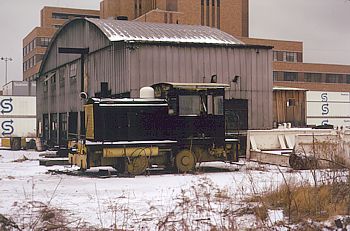
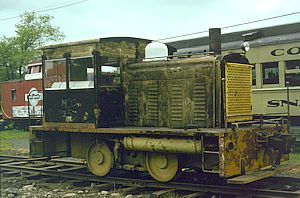
The MCC had been looking for a small, industrial switching locomotive to assist in its day-to-day operations. MCC Vice-President Anthony Citro purchased the Edgewater Whitcomb early in 1975, ,and by June of the same year, the “critter” was back in full operation once again.
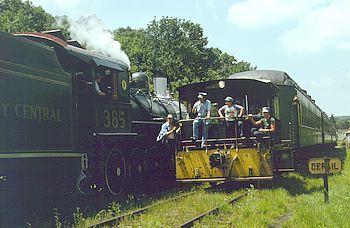
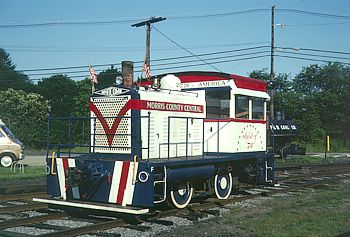
The American Revolution Bicentennial of 1976 was fast approaching, and railroad companies throughout the United States were quick to paint specially-selected locomotives, cabooses and freight cars in patriotic color schemes to celebrate the coming event. Citro’s love of America was well known and he had his locomotive painted in a red, white and blue variation of the NYS&W’s old diesel scheme. The Whitcomb appeared on its first day with the patriotic slogan, “God Bless America”, and named “The Spirit of ’76”. The locomotive acquired a new number during refurbishing…25… a nod at the time to what the weight was thought to be in tonnage. Upon its debut and subsequent operation, the Whitcomb proved to be a very popular locomotive, both in reliability and visual appreciation.
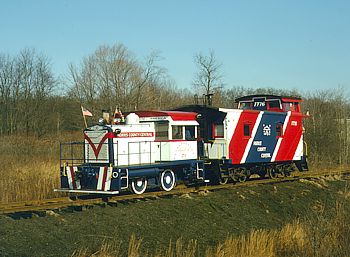

Sadly, though, the Whitcomb’s return to operation was short-lived. In mid-1977, only two years after its return to the rails, the Morris County Central took the locomotive temporarily out of service for a planned removal of the original gas-mechanical engine and installation of a second-hand Cummings diesel prime mover. The diesel had been purchased and was being fitted on the frame when the MCC began what turned out to be its final days. The return of the Whitcomb to MCC service would never come. The MCC went out of business at the end of 1980, and the Whitcomb sat in the Green Pond enginehouse for the next 14 years with no work being performed at all. Throughout the 1980s and early 90s, vandals left their mark on the Whitcomb… its windows were smashed and certain appliances were removed, never to be recovered.